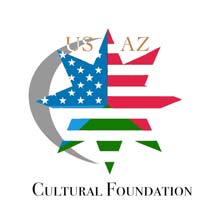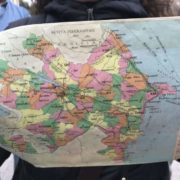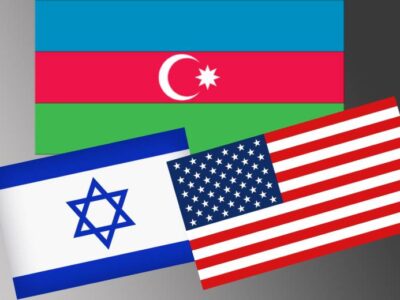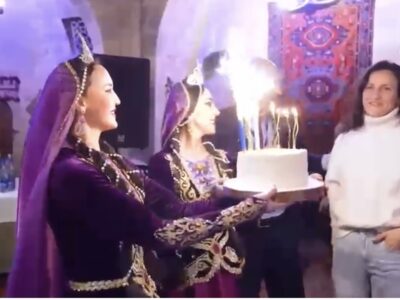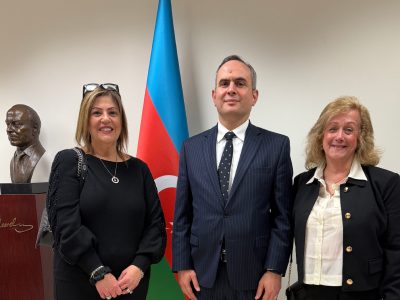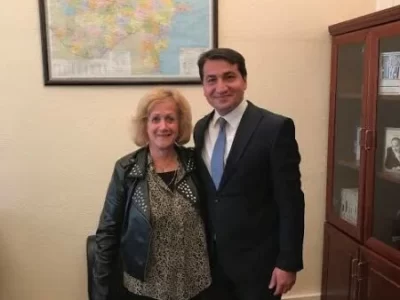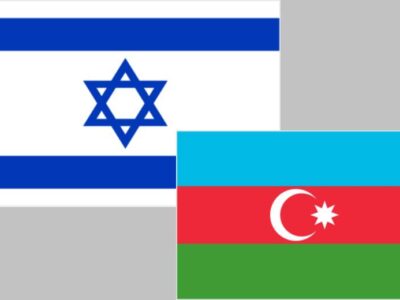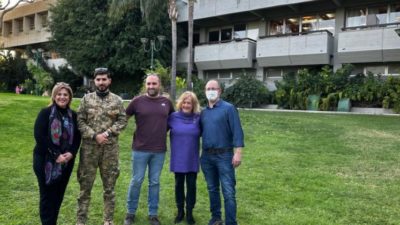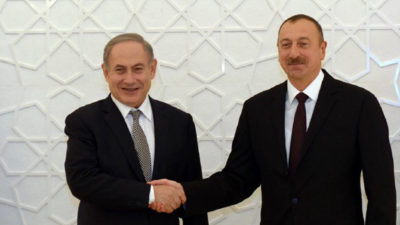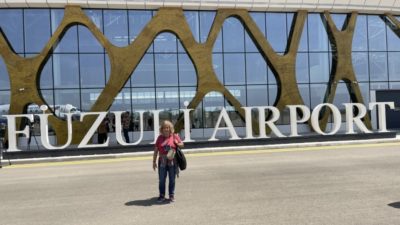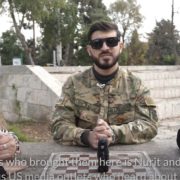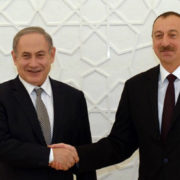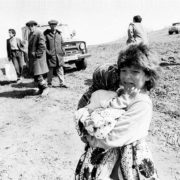Azerbaijan is a majority Muslim country. Though Islam is the predominant religion of the Azerbaijani people, the official policy of the country is ethnic and religion cohesion, tolerance and harmonious existence. Muslims, Christians and Jews, the main three monotheistic religions, live and practice in Azerbaijan in harmony of coexistence. Likewise, this applies to other religions.
In each of my visits to Azerbaijan I was always left with the sense of inclusion, no matter what religion one follows.
I met Bishop Juan Carlos Mendez, the founder of Churches In Action, based in California, in Azerbaijan when we both participated in an interfaith forum. It took two Californians, one a Christian and one a Jew, to meet in a majority Muslim country, Azerbaijan.
Since our first meeting and interaction we have developed a friendship and professional collaboration.
The following is a compilation of ongoing conversations I have had over time with Bishop Mendez, who is a Bishop of the Baptist Church and who has visited Azerbaijan enough times to have come to know the country’s Christian community. Herein is a window view into Azerbaijan’s Christian minority.
Christianity has several branches amongst them are Roman Catholic, Lutheran, Greek Orthodox, Armenian and last but not least, the Baptist, all have presence in Azerbaijan.
According to Bishop Mendez, the Russian-Orthodox church and the Lutheran churches both have historical locations in Baku.
The Nobel family, a prominent Swedish and Russian family known for their outstanding contributions to philanthropy and to the development of the armament and oil industries, the latter for which Azerbaijan is well known. The Lutheran church in Baku was built at the end of the 1890s with funds from the Nordic community members and received assistance from the Nobel family. The church, in the centre of the city, though it survived Stalin’s demolitions of religious centers, unfortunately, is no longer serving as a church, rather it is used as a concert hall.

On Sunday October 2, 2016, Pope Francis visited Azerbaijan as part of a broader South Caucasus tour which also included stops in Georgia and Armenia.
Azerbaijan has fewer than 300 Catholics in its predominantly Shi’ite Muslim population. Upon his arrival at Baku’s airport, on October 2, Pope Francis celebrated Mass in the Roman Catholic Church of the Immaculate Conception of the Blessed Virgin Mary. During his visit to Baku, Pope Francis met with representatives of all the main faiths and he also visited a mosque where he said God should never be used to justify fundamentalism.
Christian life in Azerbaijan
Due to his influential position within the Baptist Church, when local Azerbaijani Baptist leaders became aware he was in town, Bishop Mendez was often invited to celebrate Communion with them, the service of Christian worship at which bread and wine are consecrated and shared.

Bishop Mendez met members of the Baptist church in makeshift house churches in Baku, as well as other gathering places where the believers frequently meet.
These meetings left the Bishop impressed with the hundreds of people who gathered to celebrate Christian services. The reason for being impressed is that though these Christians live in the shadow of Islam, they are active and show full presence.
A parish Bishop Mendez visited was equally divided between the young and the adults, which impressed him a great deal. In one other Baptist church he visited, over 100 years old, they conducted traditional services; men and women sit separately, a custom adhered to by Orthodox Jews in their synagogues.
Bishop Mendez was left floored how these Christians survived Communism and are now flourishing. The traditional services are accompanied with music, performed by the young and the Bishop was honored to give the Homily which was translated to the Azerbaijani language.
Another service the Bishop attended was in a contemporary church. The believers turned a restaurant into a house of worship. Some 1200 people packed the venue, in a standing capacity room only. They sang contemporary Christian songs accompanied by a band while some even danced to their hearts’ delight. Celebrating their faith was the theme and the attendees who were ‘into it’ were having good time. What was interesting is that the faithful were Azerbaijanis as well as foreigners and all were engaged. Bishop Mendez had to adapt his sermon to be more western style but people were ‘into it’ he repeated to explain the joy of practicing one’s faith. The soul was celebrating and the Bishop simply felt at home.

One other church meeting took place in an Embassy building where the atmosphere brought together eastern and western Christian practices, just as Ashkenazi and Sephardic Jews get together to practice Judaism. To the Bishop’s humbling surprise, there was a total cohesion which spoke about the harmonious existence of the people of Azerbaijan. Even among the Baptist Christians, capable of engaging in harmony, whether in a traditional or contemporary practice.
In another experience, Bishop Mendez trained pastors how to minister a parish, starting by ministering oneself before ministering others, the strong base to be able to help others.
In his visits to Azerbaijan Bishop Mendez was always impressed by the religious freedom in the Russian Orthodox Church. He visited some of their houses of worship and was joyfully enlightened how the parishioners can carry on their tradition without fear of oppression from the government of Azerbaijan.
Even though the Christian community of Azerbaijan is a minority the freedom of religion is alive and well, which makes Bishop Mendez most satisfied.
Participating in Interfaith Forum
Azerbaijan often holds interfaith forums.
Bishop Mendez finds participating in such forums rewarding. To be able to sit on stage with Haji Allahshükür Hummat Pashazade, Sheikh ul-Islam and Grand Mufti of the Caucasus which includes the Republic of Azerbaijan, Republic of Georgia, and Dagestan, Kabardino-Balkaria, Ingushetia, Chechnya, Karachay-Cherkessia, and Adygea in the Russian Federation is a great honor. The same honor is be on stage with the Diocese of Rome and Russian Orthodox Bishops and Mr. Milikh Yevdayev, the Head of the ancient Community of Azerbaijan’s Mountain Jews.


In conversations about multiculturalism and interfaith in Azerbaijan, the laity are able to worship in their own faith tradition and even expand on it. For example, when Bishop Mendez visited the Jewish community in Azerbaijan, he witnessed a community that is able to practice its customs and traditions openly and safely.
Additionally, the more modern Jews also enjoy the freedom of practicing their religion as they see fit.
Bishop Mendez is most impressed by how the Azerbaijani community, at large, is so very welcoming of human interaction. As the head of a Christian organization, Bishop Mendez has had many opportunities to meet thousands of Christians in Baku.
But not only Christians or Baptists. While in Baku and prior to the COVID pandemic travel restrictions, Bishop Mendez and the writer of this op-ed, attended the Holocaust Commemoration ceremony at the prestigious Nobel House, a ceremony Bishop Mendez felt was overwhelming. It was even more remarkable because such profound commemoration took place in a majority Muslim country.
Azerbaijan, Symbol of Freedom
Thirty three years ago, Newsweek Magazine honored Azerbaijan with its cover page acknowledgment: “1989, Changing the Course of History, Standing For Freedom People Of The Year.” This acknowledgment came as the result of one million Azerbaijanis’ ‘National Freedom Movement’ came in full force to the streets of Baku to demonstrate against Soviet oppression.

Pursuing the massive demonstrations, late at night on January 19, 1990, 26,000 Soviet troops entered Baku, in order to crush the civilian population uprising, the Azerbaijani people’s zest for freedom from the Communist yoke.
The violent Soviet incursion, what has become to be known as ‘Black Saturday’ or the January Massacre, was a violent crackdown on the civilian population of Baku, in which, according to official estimates of Azerbaijan 147 civilians were killed and 800 people were injured.
Remembering ‘Black Saturday’ carries a strong message of perseverance, the values that have kept the entire Azerbaijani nation resiliently strong, despite enduring profound tragedy and hardship.
Today, we experience an extreme and lasting interruption from what we have known to be ‘normal life.’ It is crucial that we hold dearly tight to the principles of freedom, liberty, the acceptance and tolerance of one another. All of these have shown throughout time to be the basic and most important ingredients for endurance, survival, recovery, and peaceful coexistence.
As Bishop Mendez in his prominent position asserts: he sees a great future for Azerbaijan, a lighthouse in the South Caucasus. Azerbaijan is a living testimony to the coexistence of many ethnic groups in the same land; interculturalism and a multiculturalism treasure blending into one cohesive, strong nation.
